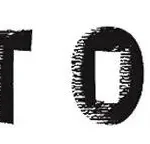TRENTON – To prevent one of the leading causes of America’s deadly opioid crisis, Gov. Chris Christie announced a new rule prohibiting prescribers from accepting lavish meals and uncapped compensation for speaking engagements, consulting work, and other services from drug companies.
The rules proposed on International Opioid Overdose Awareness Day will target the unnecessary prescription of powerful pain pills. Four in five new heroin users started out misusing prescription painkillers.
New Jersey doctors collected $69 million from drug companies and device manufacturers last year, and there are growing concerns they allow drug company money to influence their prescribing habits, especially when it comes to highly addictive opioids. Two-thirds of the $69 million received by New Jersey’s doctors went to just 300 physicians, with 39 each having received at least $200,000.
“While the vast majority of doctors care for their patients honorably and professionally, their education about many of the drugs they are prescribing comes too often from pharmaceutical sales people, who may not always provide an objective analysis of the human and social impacts the drugs may have,” said Governor Christie. “This rule will help us address any concerns about whether treatment decisions of prescribers are being improperly influenced.”
Limiting influence over New Jersey prescribers is the latest example of Governor Christie setting the tone for the President’s National Commission with innovative policies that can be replicated by states across the country.
“Doctors who prescribe medicine should be motivated only by what is best for their patients, and never by financial incentives heaped on them by the pharmaceutical industry,” said Attorney General Chris Porrino. “The rule will prohibit doctors from forming unsavory financial relationships with drug companies that manufacture highly addictive opioids. It also gives our professional boards enforceable standards to hold doctors accountable if they violate that rule.”
This proposed rule strengthens and clarifies existing limitations for licensees of the Boards of Medical Examiners, Dentistry and Optometry, and extends those standards to Advanced Practice Nurses, the only Board of Nursing licensees with prescribing authority. It provides objective standards to make prescribers accountable for the receipt of “things of value” from pharmaceutical manufacturers by, among other things:
- delineating prohibited items to include cash, gift cards, entertainment and recreational items; items for prescriber’s personal use; payments supporting non-faculty attendance at promotional activities; and continuing education events;
- establishing some exemptions from these prohibitions where the purpose is for the benefit of patients or prescriber education, such as educational materials;
- setting standards for agreements by which prescribers are paid for “bona fide services,” i.e., speaking at promotional activities and continuing education events, participation in advisory bodies and under consulting arrangements;
- requiring the terms of those agreements to be in writing, with dollar amounts and an articulation of the prescriber’s expertise;
- allowing for and defining the value (not to exceed $15 for each provider) and frequency (4 times each year from each manufacturer) of “modest” meals that can be provided in different settings for learning; and
- capping the compensations for bona fide services (with the exception of speaking at continuing education events) from all manufacturers at $10,000 every calendar year.
The rule was submitted to the Office of Administrative Law for filing today. It will be published in the Oct. 2, 2017 New Jersey Register. A hearing on the proposed rule will be held Oct. 19, 2017 to take public comment from the regulated communities, industry representatives, and the public at large. The hearing will be held at 10:30 a.m. in the Monmouth Room at the Division of Consumer Affairs, 124 Halsey Street, 7th floor, Newark, N.J.
People seeking immediate and long-term addiction prevention, treatment and recovery resources are encouraged to call 1-844-ReachNJ or visit ReachNJ.gov.








